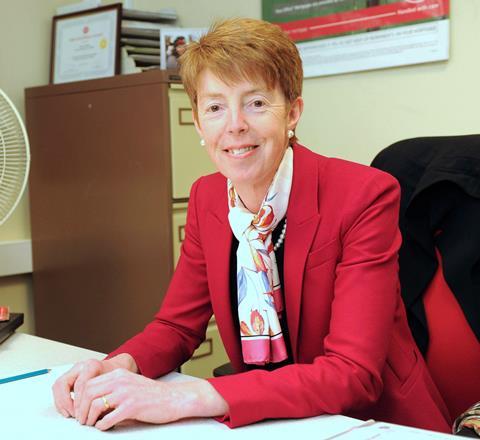Paula Vennells, the Anglican priest who was the chief executive of Post Office Limited from 2012 to 2019, will give evidence over three days this week to the Horizon IT inquiry.
Her appearance is set to gain mass media attention as she explains her role in responding to the scandal of hundreds of sub-postmasters having been convicted based on data from the faulty system.

Vennells’ time at the Post Office covers the period from the tail end of prosecutions to the abandoned mediation scheme, right through to the Bates litigation which blew open the scandal – and which had been fiercely fought by the Post Office.
She will be probed on every aspect of her time at the Post Office, including several interactions with in-house and external lawyers.
Here are five times that Vennells’ name has already come up during discussions about legal issues:
1) The inquiry will no doubt put Vennells’ relationship with general counsel Susan Crichton under the microscope and ask why the lawyer left the organisation in late 2013. Crichton had been shut out of a board meeting in July 2013 when she was due to present a paper on a report by forensic accountants Second Sight. Vennells and Crichton met at a coffee shop where the chief executive later noted that her senior lawyer became angry and shouted at her.
2) Vennells’ reflections on Crichton will be key to establishing how she regarded lawyers and where their loyalties should lie. In a now infamous meeting note made by Vennells in 2013, she said that Crichton ‘was possibly more loyal to her professional conduct requirements and put her integrity as a lawyer above the interests of the business’. Expect inquiry counsel to ask Vennells whether she did believe that lawyers should put the business over their professional duties.
3) Within weeks of Chris Aujard replacing Crichton, the Post Office board was discussing a change in prosecutions policy. Aujard’s meeting note recorded an ‘obvious reluctance to cease prosecutions as in their view this acted as a deterrent’. Vennells was said to have wanted prosecutions to continue but be ‘more circumspect’. But did she know at the time that evidence had come to light that existing prosecutions were fatally flawed, and why did this not come into her thinking when a policy change was proposed?
4) Former managing director Alan Cook gave evidence last month that Vennells had signed off on the Post Office accruing £300,000 in costs pursuing a £26,000 debt supposedly owed by Bridlington sub-postmaster Lee Castleton. This was when Vennells was network director. Cook said the money was spent without the matter being taken to him or the board. Castleton was made bankrupt and lost his home.
5) The litigation strategy overseen by Vennells and her board is bound to come under close scrutiny. The inquiry heard last week that Vennells and her communications director Mark Davies believed compensation claims were ‘opportunistic and unreasonable’. Did this attitude prompt the Post Office to continue defending the Bates litigation at enormous cost, and crucially, did Vennells know the defence was based on a series of untruths?






























